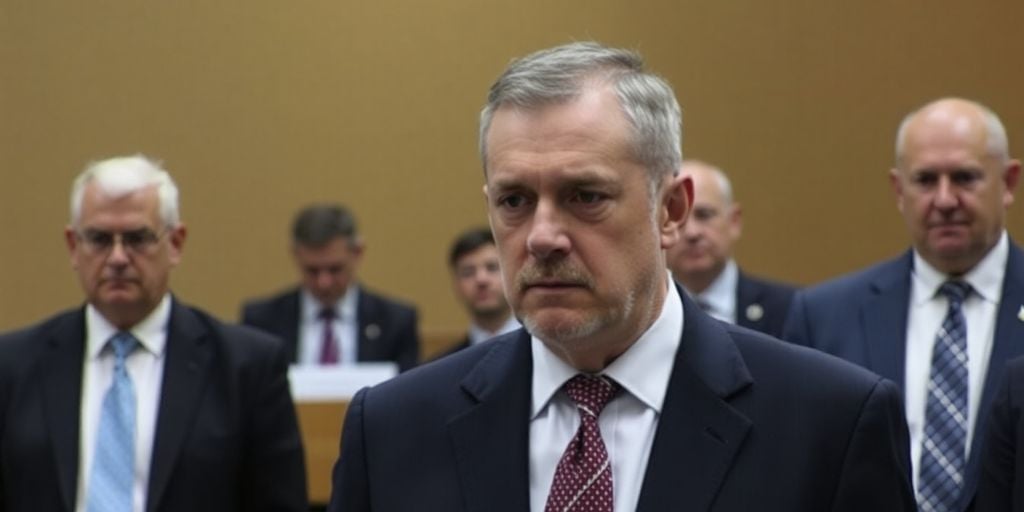The war crimes trial of former Kosovo President Hashim Thaçi continues in The Hague, marking a significant phase as the prosecution rests its case. Thaçi, who stepped down as president upon his indictment, faces charges related to his alleged role in the killing and detention of individuals during and after Kosovo’s war for independence.
Key Takeaways
- The prosecution has concluded presenting its evidence against Thaçi and three co-defendants.
- Thaçi maintains his innocence and denies feeling betrayed by the West over the trial.
- A related case saw a former Kosovo Liberation Army (KLA) member’s sentence reduced on appeal.
Trial Progress and Defense Arguments
After more than two years of presenting evidence and questioning witnesses, the prosecution has rested its case against Thaçi and his co-defendants: Kadri Veseli, Rexhep Selimi, and Jakup Krasniqi. All have denied the charges, which include responsibility for a network of detention centers where over 400 people were allegedly detained, with at least 102 killed and others missing. Defense lawyers have challenged the prosecution’s claims, arguing that the KLA lacked an effective chain of command and that the evidence does not prove a joint criminal enterprise.
Thaçi’s Stance and Public Perception
In interviews from detention, Thaçi has expressed no regret for supporting the establishment of the Kosovo Specialist Chambers, the court handling his case. He stated he feels "abused" by those who separated him from his family and took away his prime years, but not betrayed by the West or the US. While the court is supported by European allies, it faces criticism in Kosovo, where the KLA is viewed as a liberation force. Thaçi remains a popular figure, and the trial has sparked debate within Kosovar society.
Related Sentencing Appeal
In a separate but related case, appeals judges at the Kosovo Specialist Chambers upheld murder, torture, and arbitrary detention convictions against former KLA member Pjetër Shala. However, his sentence was reduced from 18 years to 13 years. The appeals panel cited insufficient weight given to Shala’s non-commanding role in one murder and found the original sentence disproportionate compared to similar cases.
International Scrutiny and Future Outlook
The trial is considered consequential for the court, established to investigate crimes committed during and after the war, particularly by the KLA. While European backers continue to support the proceedings, the United States, a significant donor and staff supplier, has been a vocal critic of Thaçi’s detention. Observers anticipate the trial’s conclusion with a verdict by spring 2026.
Sources
- Kosovo fighter’s sentence cut to 13 years despite court upholding convictions for murder and torture, The Independent.
- War Crimes Trial Of Former Kosovo President Hits Milestone As Prosecution Rests Case, Radio Free Europe/Radio Liberty.
- Kosovo Tribunal Reduces Sentence for Former KLA Member, U.S. News & World Report.
- Kosovo’s Thaci Denies Feeling Betrayed by West Over War Crimes Trial, Balkan Insight.
- A Conversation Through Bars – Adriatik Kelmendi’s interview with Hashim Thaçi, Klan Kosova.






